& 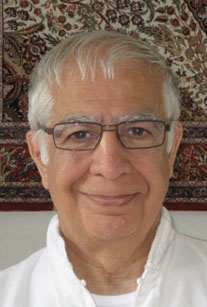 Many suggest Iran is ready to close the chapter of its revolution, switch from decades of anti-Americanism to cooperation in taming the monster of ISIS, and, along the way, cut the Gordian knot of its nuclear ambitions. This revives the “Iran is the solution” fantasy that has tempted some pundits since the 1980s. Many suggest Iran is ready to close the chapter of its revolution, switch from decades of anti-Americanism to cooperation in taming the monster of ISIS, and, along the way, cut the Gordian knot of its nuclear ambitions. This revives the “Iran is the solution” fantasy that has tempted some pundits since the 1980s.Earlier this month, the London weekly Economist ran a series of articles depicting the Iranian economy on the edge of a crisis only to conclude that the “Revolution is Dead". The implicit message is that, with "The Revolution" now fading, Iran could start behaving like a normal nation in pursuit of the interests of a normal nation. Last month in New York, Iranian President Hassan Rouhani, hosted a number of former US officials, lobbyists and fixers who promote that concept. Unless Washington helps him get a deal on the nuclear issue, Rouhani told his guests, his faction can’t normalize ties with the United States and tis regional allies. If we regard Iran as a nation, there is no reason it shouldn’t have correct relations with the United States or any other country. Decades of opinion polls show that a majority of Iranians have a good opinion of America. But Iran today suffers from a split personality: It is both a nation and, as the Islamic Republic, also a messianic cause. And the Islamic Republic of Iran, far from being part of the solution, is at the root of the conflict tearing the Middle East apart. It has built Shiite militias in Lebanon, Syria and Iraq, not to mention Afghanistan, with the aim of “exporting” its Khomeinist ideology. The mullahs’ quest for an empire has provoked violent reaction from Sunni Arabs and enabled terrorist outfits such as al Qaeda in its many versions, including ISIS, to find a new audience and a narrative of victimhood. As long as Iran remains a “cause,” it can’t normalize relations with anybody, let alone America. Coexistence among nations is not the same as that among causes. How could Rouhani or anybody else normalize with any nation when Iran itself is not normal? Iran today has two systems of justice, revolutionary-Islamic and ordinary, two or three parallel armies, several legal or para-legal legislatures and a jumble of political and police authorities pursuing different policies. What normal country has three former presidents, Hashemi Rafsanjani, Muhammad Khatami and Mahmoud Ahmadinejad, who can’t obtain passports to travel abroad? And dozens of former high officials in jail, plus an ex-prime minister, Mir-Hussein Mussavi, and a former speaker of parliament, Mehdi Karrubi, under house arrest without charge? Since Rouhani became president, more than 1,700 people have been executed in murky circumstances; dozens of journalists and scores of human-rights activists have been thrown into prison and many newspapers shut down. How could one call this normality The list of the Islamic Republic’s problems with other countries, including its neighbors, is thicker than the Tehran phone book. A few examples: *& It has severed diplomatic ties with 22 nations, half of them Muslim-majority countries, and has seen its diplomats expelled from countries as far apart as Argentina and Australia, passing by Turkey, Germany, France and Britain. *& Directly or via agents, it has seized hostages from some 30 nations, including South Korea and Italy, not to mention the United States, Britain and France. *& It has assassinated 117 people in 20 nations, from the Philippines to Turkey to Germany, not to mention the United Arab Emirates. * After 20 years of negotiations, it rejects a legal framework for the Caspian Sea. All other nations on the sea — Azerbaijan, Kazakhstan, Russia and Turkmenistan — have agreed on a formula. *&Having torn up pre-revolution agreements on sharing border-river waters with Afghanistan, Iraq and Turkmenistan, the Islamic Republic refuses new accords. *&It has rejected action with Iraq to reopen the Shat al-Arab waterway and allow Basra (in Iraq) and Khorramshahr (in Iran) to resume functioning as major ports. *&It refuses to implement a pre-revolution agreement with Kuwait on offshore oilfields, threatening military action if “the other side” signs contracts with foreign companies. *&It has engaged in periodical border clashes with Pakistan over control of strips of territory in Baluchistan. *&It has established a growing military presence in Syria with the stated objective of keeping Bashar al-Assad in power regardless of how many Syrians he kills. & Establishing normal relations requires compromise and the recognition of other nations’ legitimacy. Yet the Islamic Republic deems no other UN member, including the 56 Muslim-majority countries, truly legitimate. Its very Constitution makes it mandatory on the state to " export the revolution". It also designates the " Supreme Guide" as & & & " leader of the Islamic Ummah" as a whole, whether Muslims like it or not. As long as Iran remains a cause, not even “Supreme Guide” Ali Khamenei can normalize ties with America or anyone else. Even if Rouhani signs something to ease sanctions, it will be an act of makr, aka “tricking the Infidel.” It was only a few weeks ago that Rouhani recalled that Allah himself is called "the best of all tricksters.” ( khair al-makerin). |
&









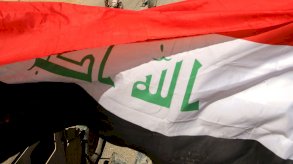
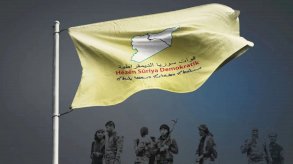
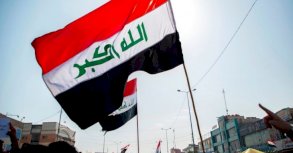
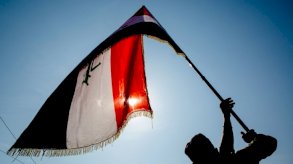
التعليقات